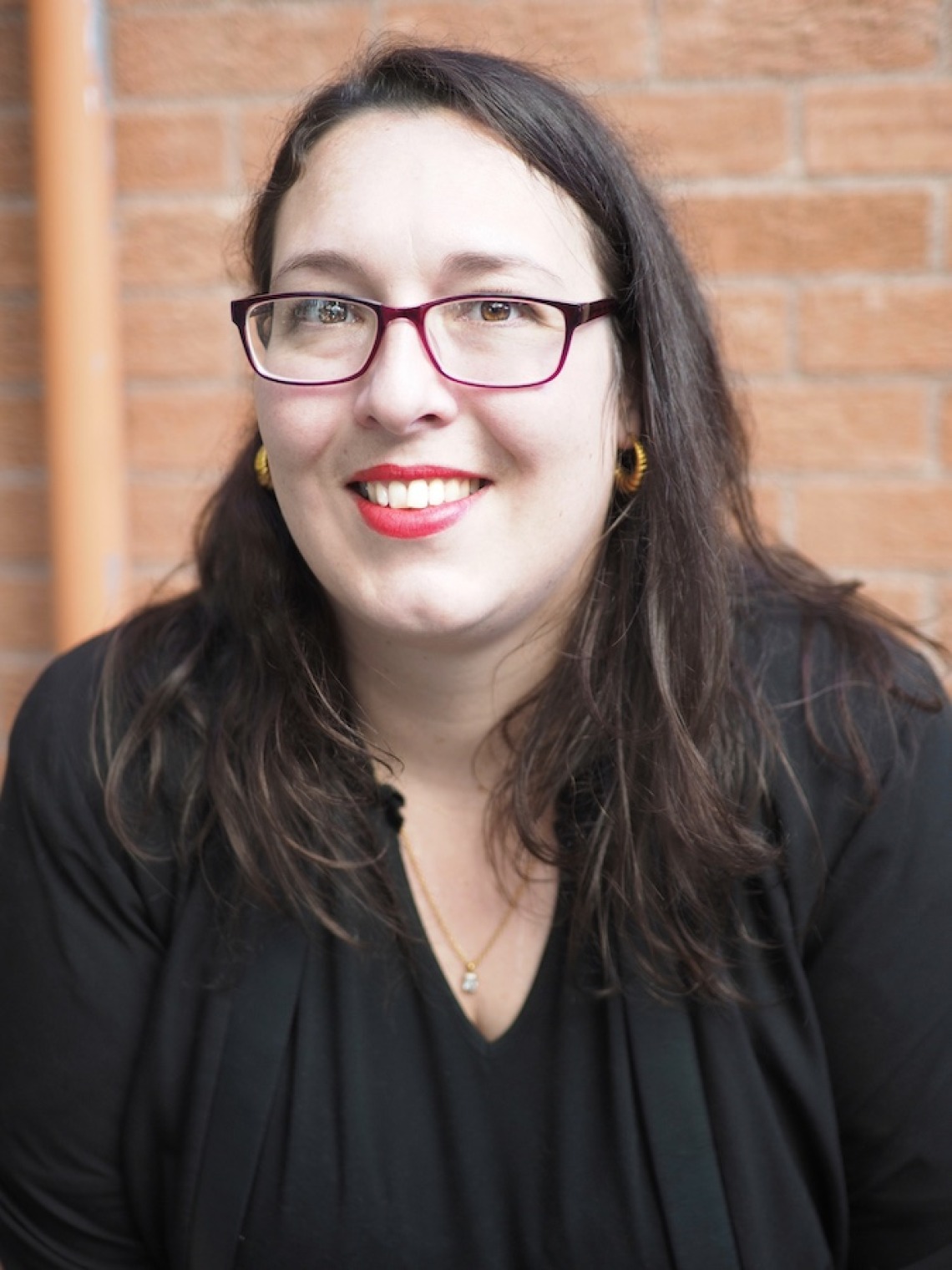Steward Observatory Professor Teaches Indigenous College Students About the Stars
Featured in a 3/26 radio segment, Dr. Virginie Faramaz teaches an introductory astronomy class at the Tohono O’odham Community College, bringing University of Arizona curriculum to students from Tribal nations across the country

Before Dr. Virginie Faramaz arrived at Steward Observatory as an assistant research professor, she had earned her PhD in exoplanetary system dynamics—trying to predict planets from the shape of comet belts—and she had completed two postdocs: one in Chile, and another at the Jet Propulsion Lab. She became faculty at University of Arizona during the pandemic, and she is currently interested in how planetary systems within the habitable zone of stars retrieve organic materials and water from beyond what she calls the “ice line.” Her work will help researchers choose exoplanets to observe that are likeliest to harbor life.
But alongside her interest in faraway planets and the hunt for clues of life beyond Earth, Faramaz arrived in Tucson with the hope of teaching. This year, that dream came true: she was invited to lead an online course for the San Carlos Apache College (SCAC) in conjunction with the Tohono O’odham Community College (TOCC), following in the footsteps of Steward Observatory’s Peter Milne, who taught introductory astronomy in this setting last year. Stepping beyond her research and into the virtual classroom, Faramaz now teaches about the solar system to indigenous students from as far away as Nebraska.
Faramaz believes that her introductory course in astronomy sets students up for skills that reach far beyond astronomy, from critical thinking to physics. “We touch on a little bit of everything,” she says. This is what initially drew her to astronomy as a student, too: she double-majored in physics and chemistry, and when she went on to pursue her master’s degree, she discovered that astronomy spanned all her interests. If her TOCC students “come away with some general knowledge of the universe, and some sense of wonder, and some sense of how science works, and if they have a little bit of critical thinking—that's what I hope they will get out of the class.”
This semester, Faramaz is learning as much from her students as they are learning from her. For example, Apache students in her class taught her that wintertime is traditionally the only time when stories about the night sky can be told—so in the early months of the semester, before winter turned to spring, Faramaz asked the class to share myths about the cosmos with each other. Some shared stories from as far away as Greece and the Yakama Nation. One student described how the Yomi people describe the universe as being made up of nine layers. Another student taught the class how the Big Dipper is called “the hook,” describing the Tohono O’odham tool used during the local saguaro harvest to pluck fruit from the tops of tall cacti.
Between sharing stories about constellations and learning about quantum physics and spectral lines, the wonder of astronomy permeates Faramaz’ class. “The immensity of space and the universe is so mind blowing,” she says. “I hope it will give them the impulse to push further with their education.”
On March 26th, Faramaz talks with the Tohono O’odham Community College radio station about her introductory astronomy class. The show airs locally on 3/26/2024 between 2 pm and 4 pm MST:
KWAK LP 102.5 (San Xavier Community)
KOHF LP 101.1 FM (Florence)
KOHN 91.9 FM (Sells)
KOHH 90.7 FM (San Lucy)

